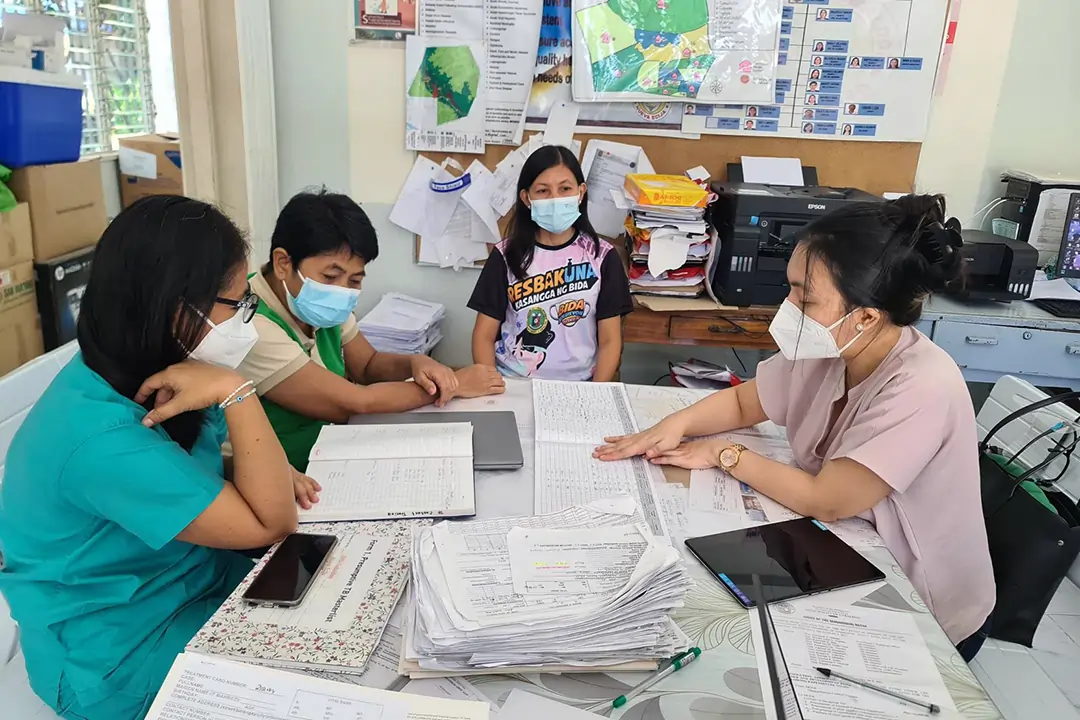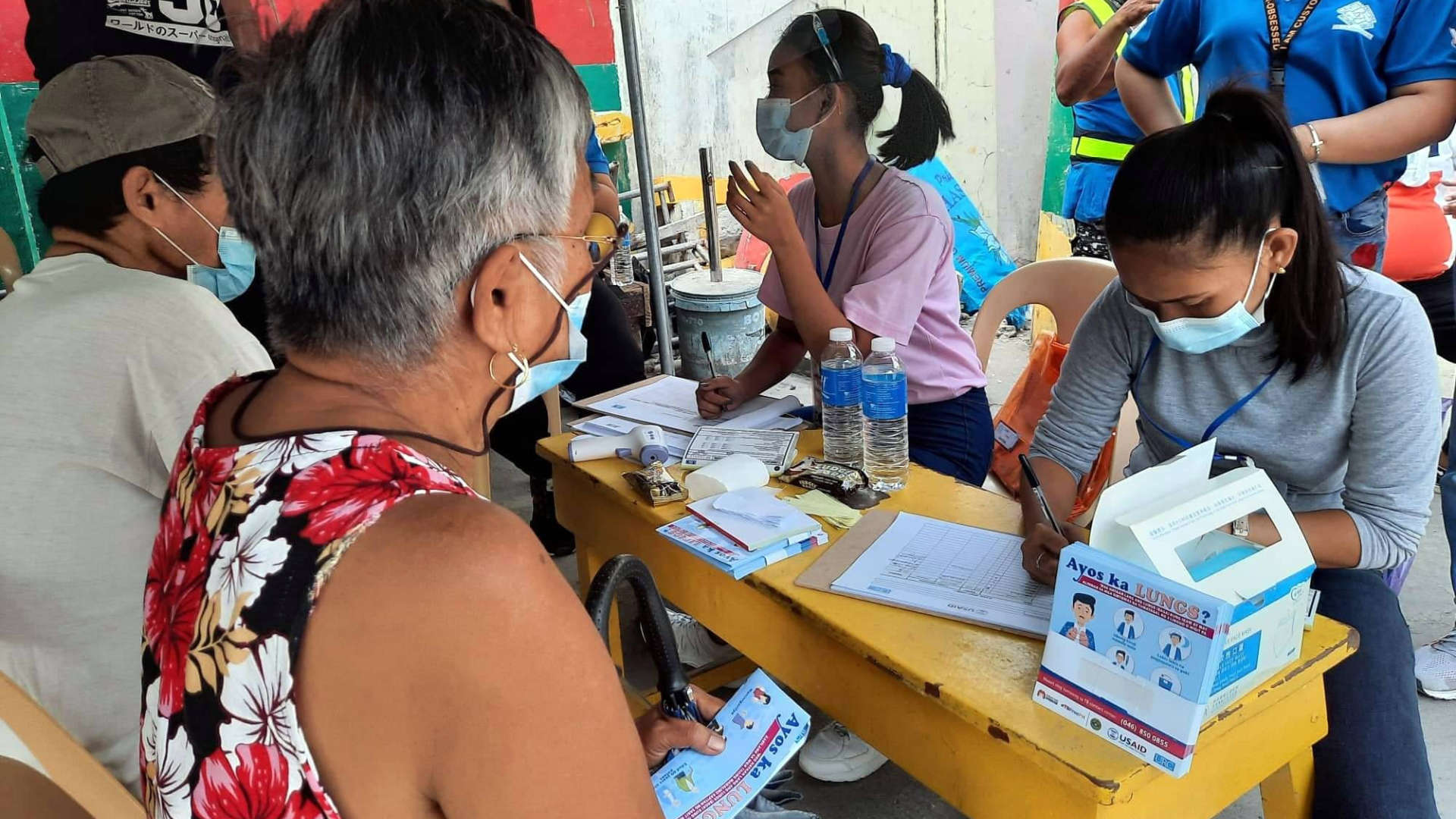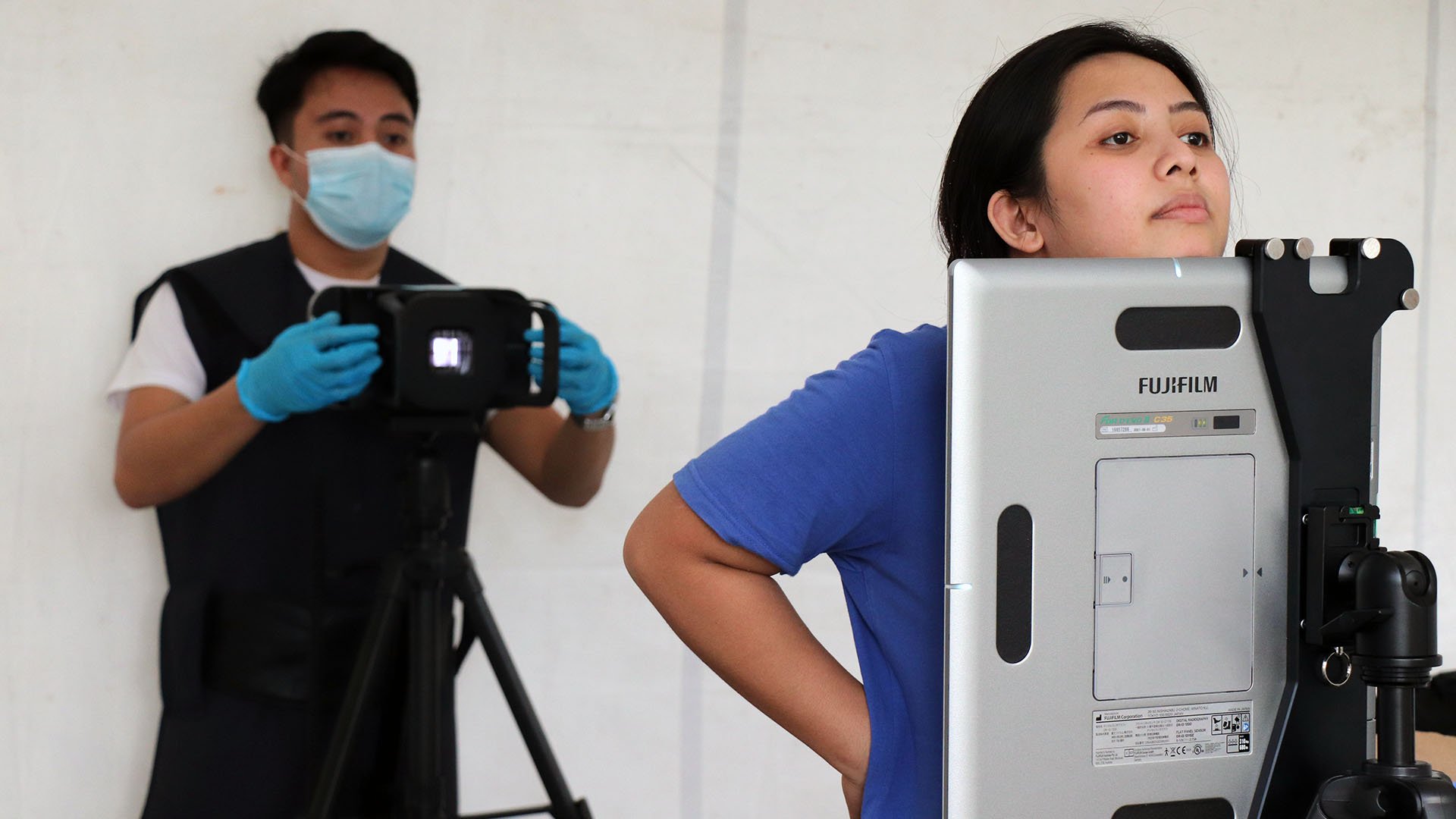Tuberculosis (TB) poses a significant economic and public health challenge to the Philippines, with a high TB incidence rate of 650/100,000 population and challenges in controlling the disease, including a national treatment coverage rate of just 53%.
But USAID’s TB Platforms for Sustainable TB Detection, Care, and Treatment Activity – implemented by URC – is helping to reduce the burden of TB in the Philippines in part by using a continuous quality improvement (CQI) approach to case finding, among other interventions.
CQI provides a systematic approach to identify gaps, streamline processes, and deliver evidence-based, patient-centered care. It empowers frontline healthcare workers and engages stakeholders to strengthen the TB service delivery ecosystem in selected sites. And it’s iterative, meaning observations and data are used to further improve approaches and results, continuously.
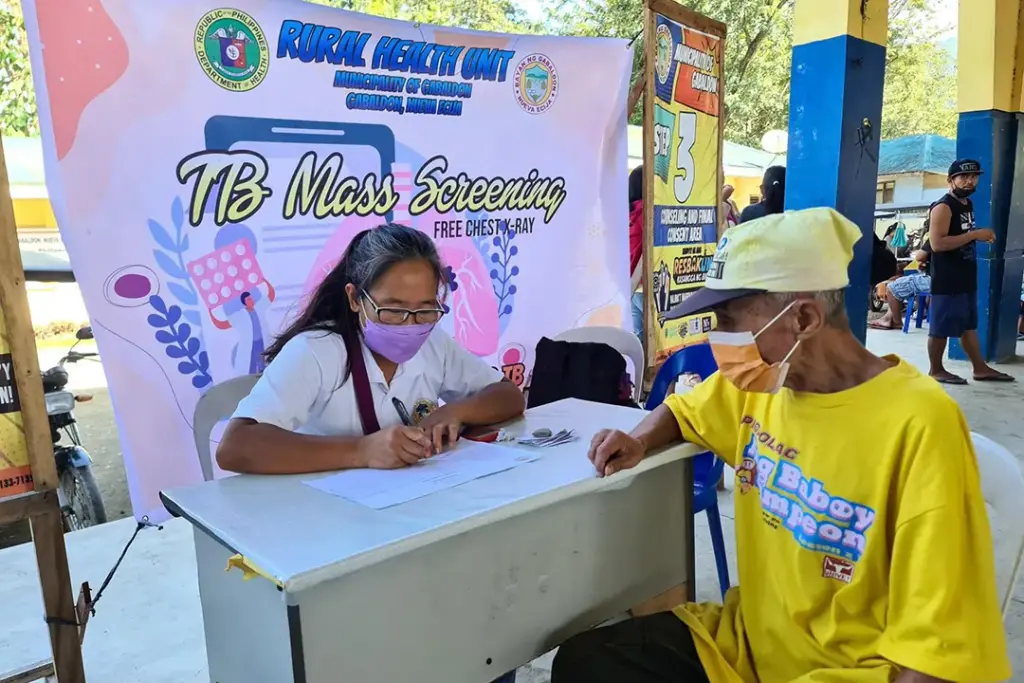
URC: More than Four Decades of Quality Improvement Experience
URC’s leadership in CQI – and quality improvement, generally – traces back to the global Primary Health Care Operations Research (PRICOR) Project, implemented from 1981 to 1991. PRICOR laid the foundations for the CQI work URC is conducting today through its research into why preventable diarrhea was a major cause of child deaths in lower-income countries despite the availability of an effective, inexpensive, and simple technology to prevent these tragedies.
Since PRICOR, URC has led projects incorporating quality improvement in more than 45 countries. Today, the activities we lead in Uganda, Jordan, Ghana – and, of course, the Philippines – continue to use CQI to revise and test approaches to addressing health system and health care challenges.
“A key to our approach is advancing leadership, governance, and management capacity at all levels, as well as the competence and motivation of providers to deliver quality, people-centered care,” said Carlos Cuéllar, MD, MPH, URC Executive Vice President.
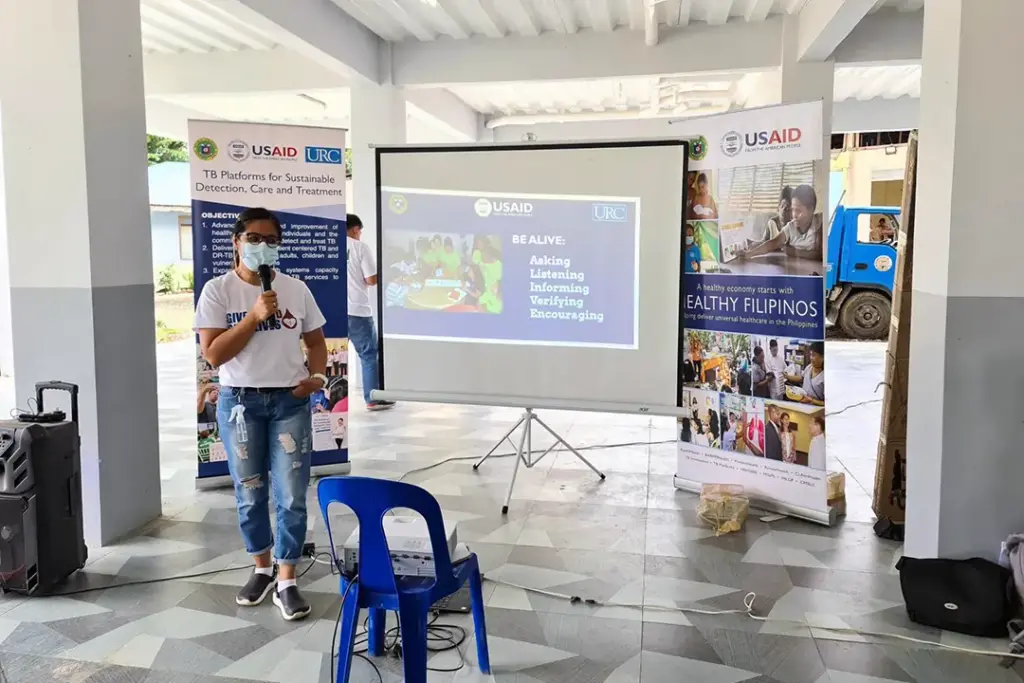
Reshaping TB Case Finding by Engaging Healthcare Workers, Community Leaders, and Health Authorities
One way which TB Platforms is using CQI in the Philippines is to improve facility-led case finding in Nueva Ecija, a province in the Central Luzon region.
Nine municipalities in Nueva Ecija recognized the need in 2020 for a comprehensive and data-driven approach to TB, especially considering the COVID-19 pandemic. So they embraced CQI to optimize their TB screening and testing (or case-finding) strategies.
In 2020, USAID’s TB Platforms trained 35 healthcare workers on CQI in Nueva Ecija, including TB program coordinators and provincial health leadership. An output of the CQI training was a fishbone analysis to identify the gaps or bottlenecks. The analysis led to refining data collection processes at healthcare facilities, which led to interventions to reduce diagnostic delays, decrease missed opportunities for screening, and address challenges to reaching marginalized communities.
TB Platforms actively engaged healthcare workers, community leaders, and local health authorities. Their insights, perspectives, and feedback were invaluable in fine-tuning the case-finding approaches. This engagement fostered a sense of ownership and collective responsibility for TB control within the community.
In short, CQI has reshaped TB case finding within primary healthcare facilities in Nueva Ecija. The data speaks for itself, case notifications increasing from 120 in 2020 to 392 in 2022, the rate of bacteriological confirmed TB cases increasing from 26% in 2020 to 65% in 2023 and diagnostic delays declining from 10 days in 2020 to 3 in 2023.
“Through CQI, we are able to focus on one problem at a time and find strategies to solve problems while continuously searching ways for a better delivery of healthcare services – especially TB control strategies,” said Dr. Shiena Grace Pascual, Municipal Health Officer for Gabaldon municipality in Nueva Ecija.
